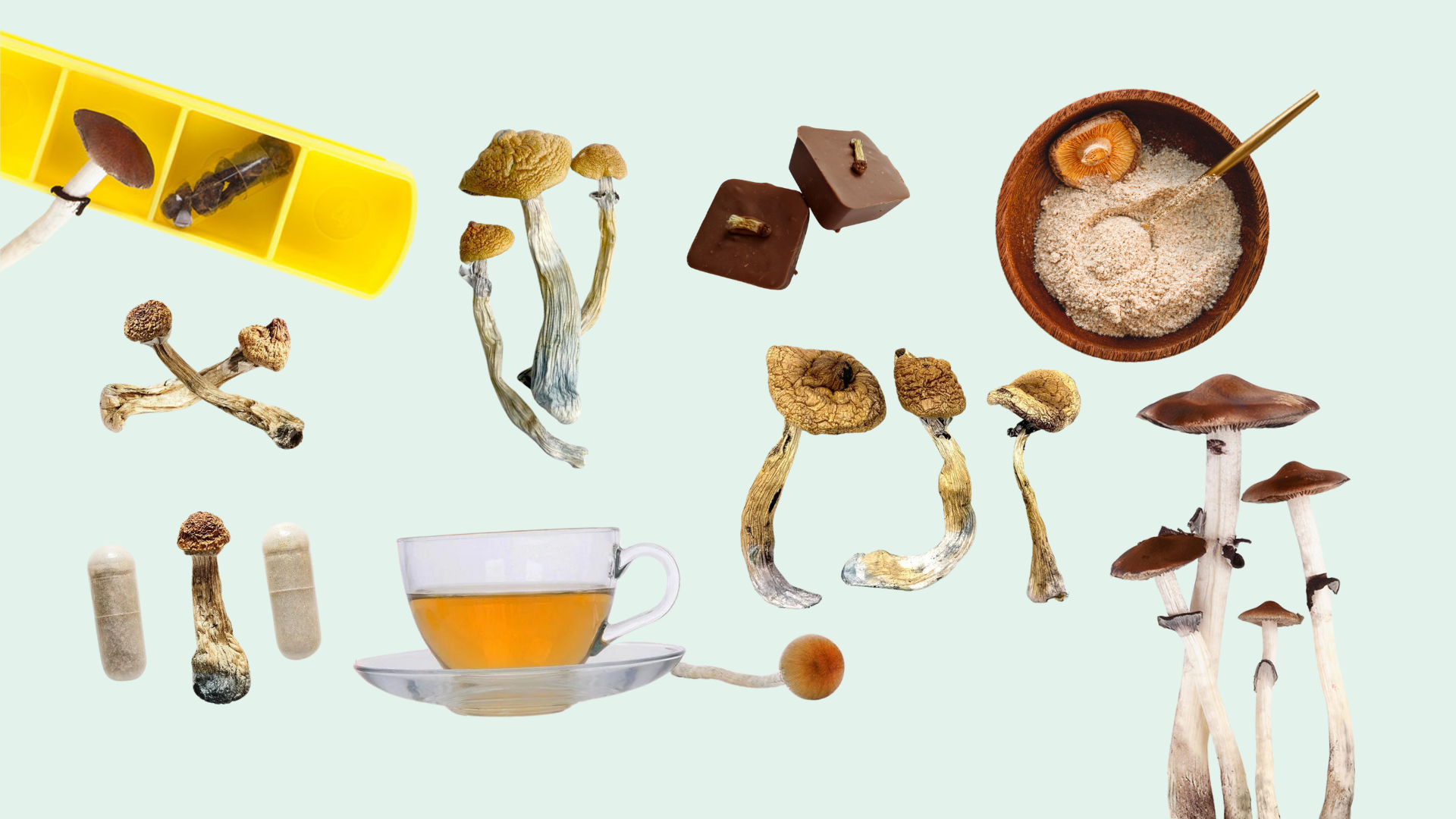What Are Psilocybin Withdrawal and Side Effects Like?
Psilocybin, the primary psychoactive compound found in certain species of mushrooms, is known for its hallucinogenic properties, which can profoundly alter perception, cognition, and emotional states. While psilocybin is generally considered to have a relatively low risk of physical dependence and addiction compared to other substances, the discontinuation of regular psilocybin use can still lead to a range of withdrawal symptoms, primarily in the psychological realm.
Some psilocybin withdrawal symptoms may include
- Persistent depressed mood
- Hopelessness
- Anxiety
- Difficulty concentrating
- “Brain fog”
- Nausea
- Fatigue
- Muscle weakness
- Headaches
Some users may experience persistent visual disturbances or hallucinations, a condition known as hallucinogen-persisting perception disorder (HPPD). These lingering effects can be particularly distressing and may persist for months or even years after the last psilocybin use.
What Is the Psilocybin Withdrawal Timeline?
The timeline of psilocybin withdrawal can be somewhat variable, as a range of factors can influence the onset and duration of symptoms. However, a general timeline can be outlined to understand better what to expect during detox.
Days 1 to 2
In the initial 24 to 48 hours following the cessation of psilocybin use, individuals may experience a surge of anxiety, restlessness, and difficulty sleeping.
Days 3 to 5
Clients may start to exhibit more pronounced psychological symptoms, such as depression, mood swings, and cognitive impairments. Vivid dreams and nightmares are also common.
Days 6 to 7
Some may continue to struggle with lingering effects, including cravings for psilocybin, difficulty concentrating, and a general sense of emotional instability.
It’s important to note that the timeline can vary significantly from person to person, and in some cases, certain withdrawal symptoms may persist for weeks or even months. Factors such as the duration and intensity of psilocybin use, the individual’s brain chemistry, and the presence of any underlying mental health conditions can all influence the withdrawal process.
What Is Psilocybin Detox and Treatment?
Psilocybin detox and treatment can be a complex and multifaceted process, as the withdrawal symptoms associated with psilocybin use are primarily psychological. Unlike withdrawal from substances like alcohol or opioids, which can involve severe physical symptoms, psilocybin detox typically focuses on addressing the emotional and cognitive disturbances that arise during the discontinuation of use.
Counseling and Therapy
One of the primary pillars of psilocybin detox and treatment is the incorporation of counseling and therapy. Individual or group therapy sessions can help individuals understand the triggers and underlying factors that contributed to their psilocybin use, and develop effective coping strategies to manage cravings and withdrawal symptoms.
Cognitive behavioral therapy (CBT) has been particularly effective in the context of psilocybin withdrawal, as it helps individuals identify and challenge negative thought patterns and behaviors.
Medication-Assisted Treatment (MAT)
While there are no FDA-approved medications specifically designed to treat psilocybin withdrawal, healthcare providers may sometimes prescribe certain medications to alleviate specific symptoms. For example, antidepressants or anti-anxiety medications may be used to address persistent mood disturbances or anxiety during the withdrawal process.
Holistic and Supportive Approaches
In addition to counseling and medication-assisted treatment, a comprehensive psilocybin detox and recovery program may also incorporate a range of holistic and supportive approaches. These may include:
- Nutritional counseling and dietary modifications
- Exercise and physical activity
- Mindfulness-based practices, such as meditation or yoga
- Participation in support groups, either in-person or online
By addressing the multifaceted needs of individuals during the psilocybin detox process, healthcare providers can help facilitate a more comprehensive and sustainable path to recovery.
Navigating the Road to Recovery
Embarking on the journey of psilocybin detox and recovery can be a challenging and complex process. Still, with the proper support and strategies, individuals can successfully overcome the withdrawal symptoms and regain control of their lives.
One of the key factors in navigating the road to recovery is recognizing and acknowledging the problem. Admitting that psilocybin use has become problematic, and that professional help is needed is the first crucial step toward initiating the detox and recovery process.
Once the decision to seek help has been made, it’s essential to connect with a healthcare provider or a specialized addiction treatment facility that can provide a comprehensive, individualized approach to psilocybin detox and recovery. These professionals can help guide individuals through the withdrawal process, address any underlying mental health concerns, and develop a personalized treatment plan that addresses each individual’s unique needs and circumstances.

